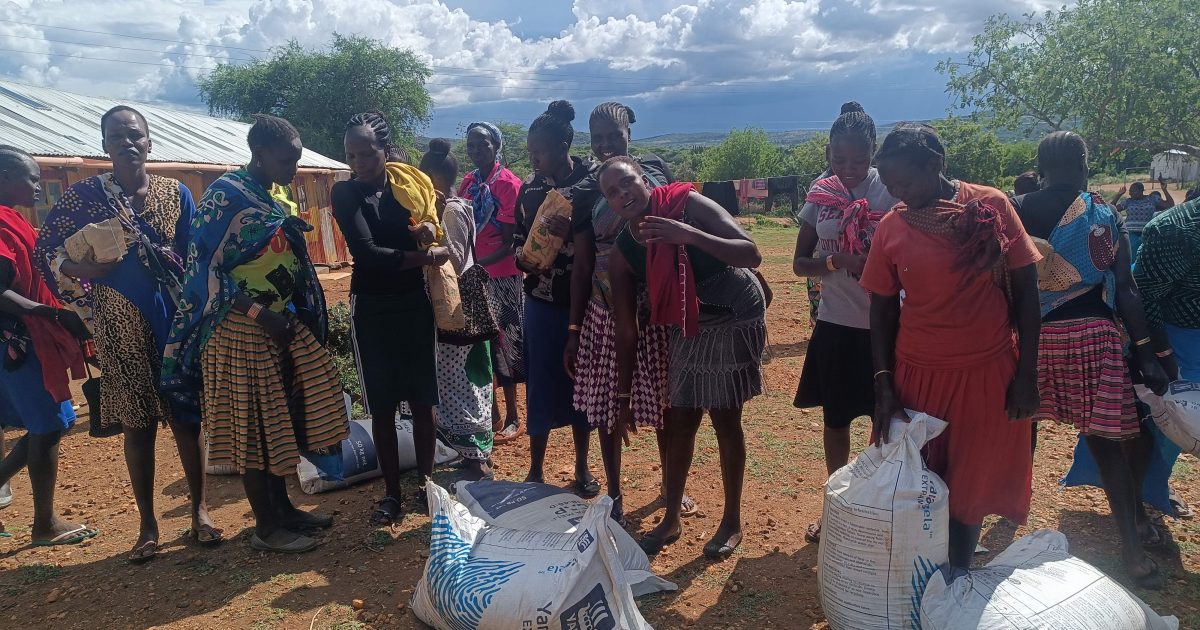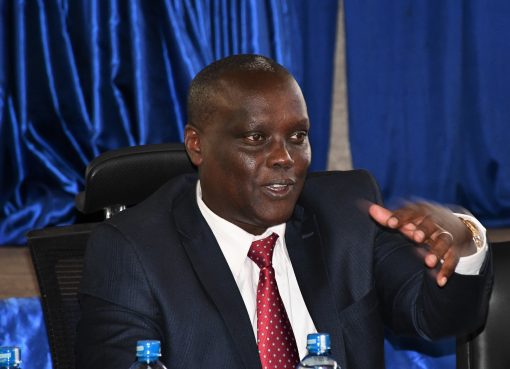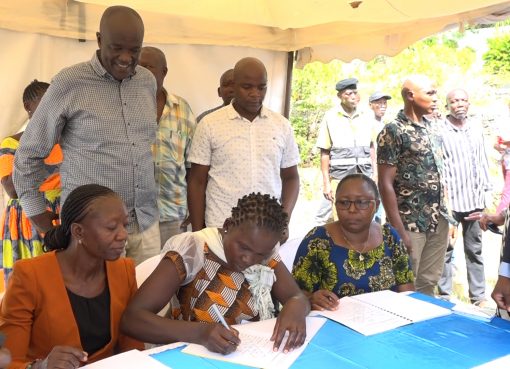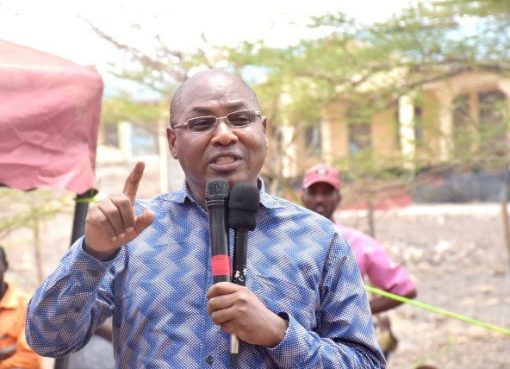In a transformative initiative, maize farmers from Alale and Kapchok ward in West Pokot County are set to benefit from essential farm inputs donated by the United Nations Development Programme-Africa Borderans Centre (UNDP-ABC) in collaboration with the county government.
Speaking at Bethany Academy school in Kacheliba Constituency, national coordinator for the UNDP program, Bernard Kimutai, said the effort aims to combat food insecurity and foster community cohesion.
Kimutai said the initiative aims to enhance agricultural production, improve food security, and promote community cohesion among residents.
He said 140 small-holding farmers from Alale ward received 17 kilograms of planting and topdressing fertilizer, along with a 2-kilogram bag of fast-maturing maize seeds.
He said the initiative was a pilot project aimed at introducing early maturing crops and promoting the use of fertilizer both for planting and topdressing.
He further stated that the goal of the initiative was to demonstrate the importance of climate-resilient agricultural practices to agro-pastoralist communities in arid and semi-arid regions.
Kimutai noted the distribution was also part of a broader project aimed at supporting communities within the Karamoja cluster, which encompasses cross-border regions from Kenya and Uganda.
The project also focuses on empowering agro-pastoral communities while facilitating collaboration with local authorities and private partners.
This is against a backdrop of the region’s agriculture, which is heavily affected by climate variability, including unpredictable rainfall that leads to drought and floods, significantly impacting food production and livelihood security.
Kimutai noted that environmental degradation, such as soil erosion and deforestation, exacerbates the challenges, underscoring the need for targeted interventions to support farmers.
He said the UNDP initiative sought not only to strengthen agricultural practices but also to enhance economic resilience through the promotion of smart crop and livestock production systems.
He also said the project was to bolster small enterprises engaged in informal cross-border trade and improve access to climate-resilient infrastructure.
The official emphasized the project’s holistic approach in integrating socio-economic and cultural capacities to ensure sustainable livelihoods and peacebuilding in the border areas.
“The distribution of farm inputs was made possible with the support from the governments of Luxembourg, Denmark, and South Korea through UNDP’s funding windows,” he said.
Kimutai encouraged farmers to make effective use of the inputs donated to them to significantly enhance food security in Alale ward.
The county Director for Agriculture in West Pokot County, Philip Tingáa, lauded the collaborative efforts between county agricultural officials and UNDP to distribute farm inputs in Alale ward, part of the Karamoja cluster.
Ting’aaexpressed gratitude on behalf of the county government for UNDP’s generous support, especially in the face of significant challenges posed by climate change.
He noted that, for many years, farmers in the West Pokot region have predominantly relied on pastoralism, depending entirely on livestock for food and income.
He said there was a need to encourage the farmers to diversify into crop cultivation to meet their food needs and transition to more sustainable agro-pastoralist practices.
‘‘The shift not only helps secure food but also enables community members to diversify their income sources,’’ Ting’aa said.
With the onset of the long rains, Tingáa appreciated the UNDP’s efforts to support farmers in the planting season.
He lauded the county government’s efforts in motivating the community to grow pastures to sustain the livestock, especially as available grazing lands have diminished.
He said the county government planned to distribute various grass seeds and fodder, including African foxtail grass, which can be harvested and stored to help mitigate the impact of the dry season, a recurring challenge in the county.
Dorcas Akodos, a farmer, expressed her gratitude for the donations of farm inputs, stating that the support would enhance her family’s agricultural productivity and help reduce local community dependency on food donations.
‘‘Anyone who provides you with farm inputs like seeds and fertilizer supports you for self-reliance,’’ she said.
Akodos said the initiative represents a significant step toward promoting self-sufficiency and resilience in the face of ongoing challenges faced by the community.
Another farmer and a member of the Arid and Semi-Arid Land (ASAL) farmers group, Evans Peitum,, stated that the inputs would increase agricultural productivity and build resilience against climate challenges.
By Anthony Melly





